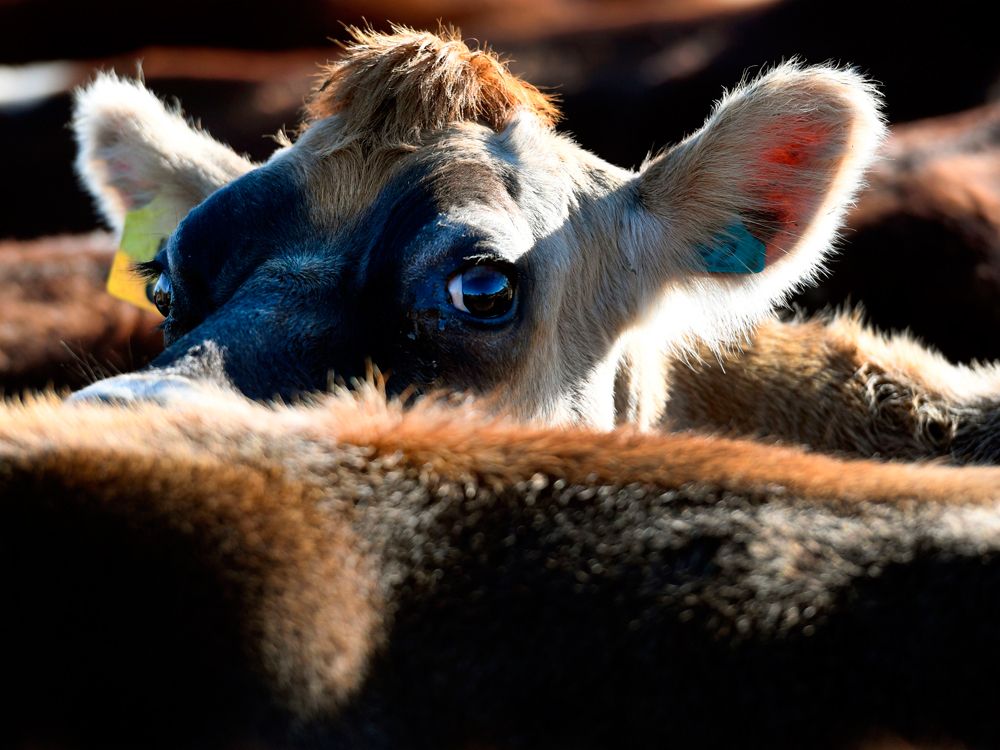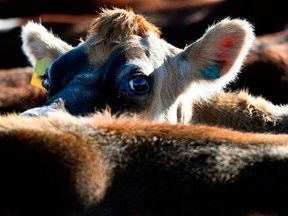New Zealand cheers Canada’s loss in dairy dispute and calls for ‘significant reform’

Canada has repeatedly broken its promise to let foreign cheese and butter flow more freely into the country, officials say

Article content
New Zealand said Canada needs to overhaul its approach to dairy imports because Prime Minister Justin Trudeau’s government has repeatedly broken its promise to let foreign cheese and butter flow more freely into the country.
Advertisement
Story continues below
This advertisement has not loaded yet, but your article continues below.
Article content
The public criticisms are the first in what trade lawyers expect could become an international pile-on following Canada’s loss to the United States this month in a long-running dairy dispute. Canada’s approach to dairy imports has long been a sore spot for trading partners, and the success of the U.S. in challenging that approach could embolden copycat actions under trade agreements Canada signed with the European Union and a group of mostly Asian countries that includes New Zealand, a major dairy exporter.
New Zealand’s ministry of foreign affairs and trade, “is currently considering its next steps to address these serious concerns,” spokesperson Susan Pepperell said in an email on Jan. 17.
The trade ruling that got New Zealand’s attention involved U.S. complaints that Canada was using a work-around to dull the impact of extra dairy imports allowed under the United States-Mexico-Canada Agreement (USCMA), the pact that replaced the North American Free Trade Agreement in 2020.
Advertisement
Story continues below
This advertisement has not loaded yet, but your article continues below.
Article content
In the new treaty, Canada agreed to let in more dairy imports, effectively softening its supply management system that has historically used high tariffs on imports to shield the domestic dairy producers from competition. But Canada quickly upset the American dairy industry by handing the majority of the extra dairy import quotas to Canadian dairy companies that had little incentive to bring in competing U.S. brands. The result was that the imports skewed toward lower-value products that importers could turn into more expensive retail goods, including bricks of mozzarella for frozen pizzas.
The panel sided with the U.S., ruling that under the treaty Canada can’t hold back import quotas exclusively for domestic processors.
Advertisement
Story continues below
This advertisement has not loaded yet, but your article continues below.
Article content
New Zealand said it was following the dispute closely and welcomed the result, since Canada has used a similar quota allocation mechanism under the 11-country Trans-Pacific Partnership (TPP). “New Zealand has repeatedly maintained that this is inconsistent with Canada’s obligations under CPTPP,” Pepperwell said, adding that the Canada’s system needs “significant reform.”
New Zealand complained that Canada hasn’t actually imported the additional dairy it committed to under the TPP, which took effect in 2018. The fill rate on those quotas are “unacceptably low,” with import volumes below 10 per cent of the negotiated level in some categories, Pepperwell said.
“This is adversely affecting New Zealand exporters,” she said. “It is also adversely affecting Canadian consumers, who are missing out on the increased consumer choice.”
Advertisement
Story continues below
This advertisement has not loaded yet, but your article continues below.
Article content
Global Affairs Canada didn’t immediately respond to questions, but last week said its quota distribution rules are “fully compliant” with its commitments under TPP and aren’t currently in any phase of the dispute resolution process.
“The Government of Canada will continue to stand up for Canada’s dairy industry, farmers and workers and the communities they support and will continue to preserve, protect and defend our supply management system,” spokesperson Lama Khodr said in an email.
-

Blood in the water: Ottawa likely to face more trade battles after losing U.S. dairy dispute, lawyers say
-

Ottawa’s defeat in dairy dispute with U.S. could mean more choice at the cheese counter for consumers
-

Burning Questions: When will my grocery bill stop spiralling?
Advertisement
Story continues below
This advertisement has not loaded yet, but your article continues below.
Article content
The federal government has been holding consultations on its quota allocation system since 2019, though that review process appears to have stalled, according to Meredith Lilly, an associate professor of trade at Carleton University who served as a trade adviser to former Prime Minister Stephen Harper.
James McVitty, vice-president of trade strategy for the Americas region at New Zealand-based dairy company Fonterra Co-operative Group Ltd., said the review hasn’t produced any changes and “we’re wondering where that’s at.”
Under the current rules, he said Canadian processors “sit on” the import quotas rather than use them.
“It’s given to our competitors who don’t have much reason to import milk,” he said. “Canadian consumers would be getting more grass-fed New Zealand butter on the shelves.”
• Email: [email protected] | Twitter: jakeedmiston
Advertisement
Story continues below
This advertisement has not loaded yet, but your article continues below.








